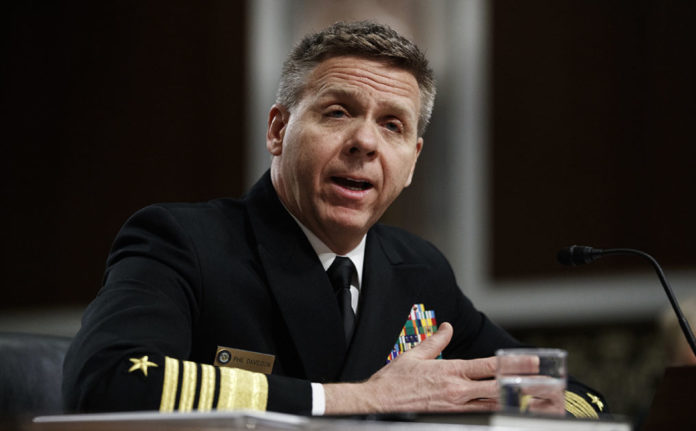
Commanders of the US forces in the Pacific and on the Korean Peninsula told the US Senate Armed Services Committee on Tuesday that North Korea remains a top threat to the United States despite diplomatic efforts from the current administration.
North Korea’s annual military exercises, which are seen as an act of aggression towards its neighbors to the south, have not changed in timing, scope, or size, commander of US Forces Korea, Army General Robert Abrams told the committee. But General Abrams also noted that there has been “significant reduction in tensions” compared to recent history of nuclear tests by North Korea.
“I remain clear-eyed about the fact that, despite a reduction in tensions along the DMZ and a cessation of strategic provocations coupled with public statements of intent to denuclearize, little to no verifiable change has occurred in North Korea’s military capabilities,” Abrams told members of the Senate Committee.
Chief of the US Indo-Pacific Command, Navy Adm. Philip Davidson expressed optimism for establishing better relationships between our countries in the upcoming summit in Vietnam between President Trump and North Korea leader Kim Jon Un. Davidson cautioned, however, that North Korea remains the most immediate challenge for the U.S.
“I am optimistic about the upcoming U.S.-North Korea summit later this month as we work toward identifying the path to final fully verifiable denuclearization as agreed upon by President Trump and Chairman Kim at their 2018 Singapore summit,” Davidson told senators.
Davidson mentioned to the senate committee that US military assets in the region will continue to maintain a state of “readiness” in region to respond to any threat while the State Department continues to seek a diplomatic solution.
Davidson also express skepticism regarding North Korea effort to denuclearize, concurrent with other intelligence officials.
“We think it is unlikely that North Korea will give up all of its nuclear weapons or production capabilities, but seeks to negotiate partial denuclearization in exchange for U.S. and international concessions,” Davidson told the senators.
The US national intelligence community largely agree that it is unlikely North Korea will be willing to give up its nuclear weapons. This is in sharp contrast to public statements made the President Trump. President Donald Trump frequently touts great progress to denuclearize North Korea.